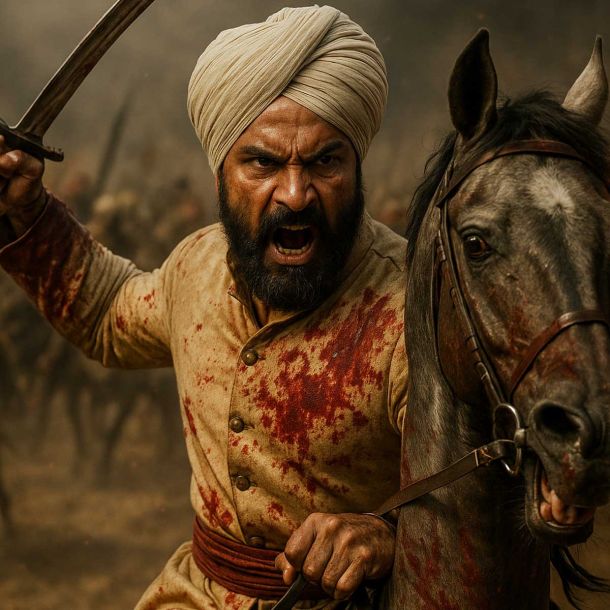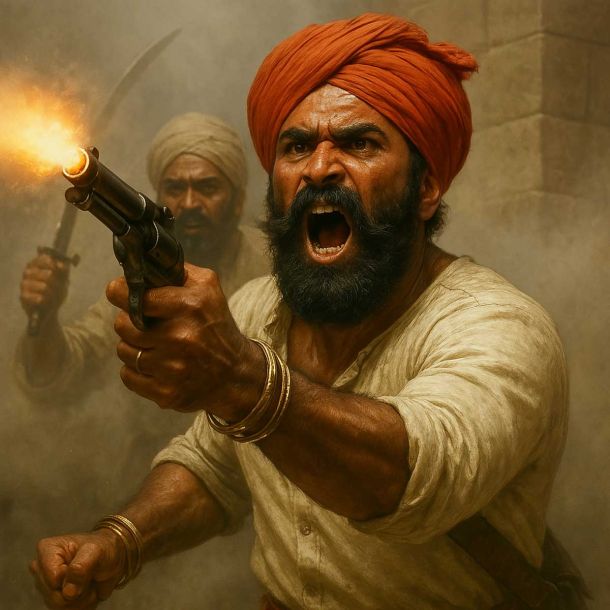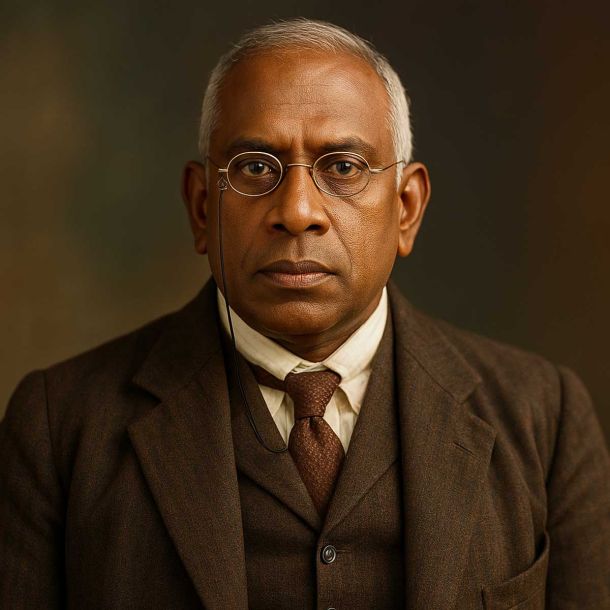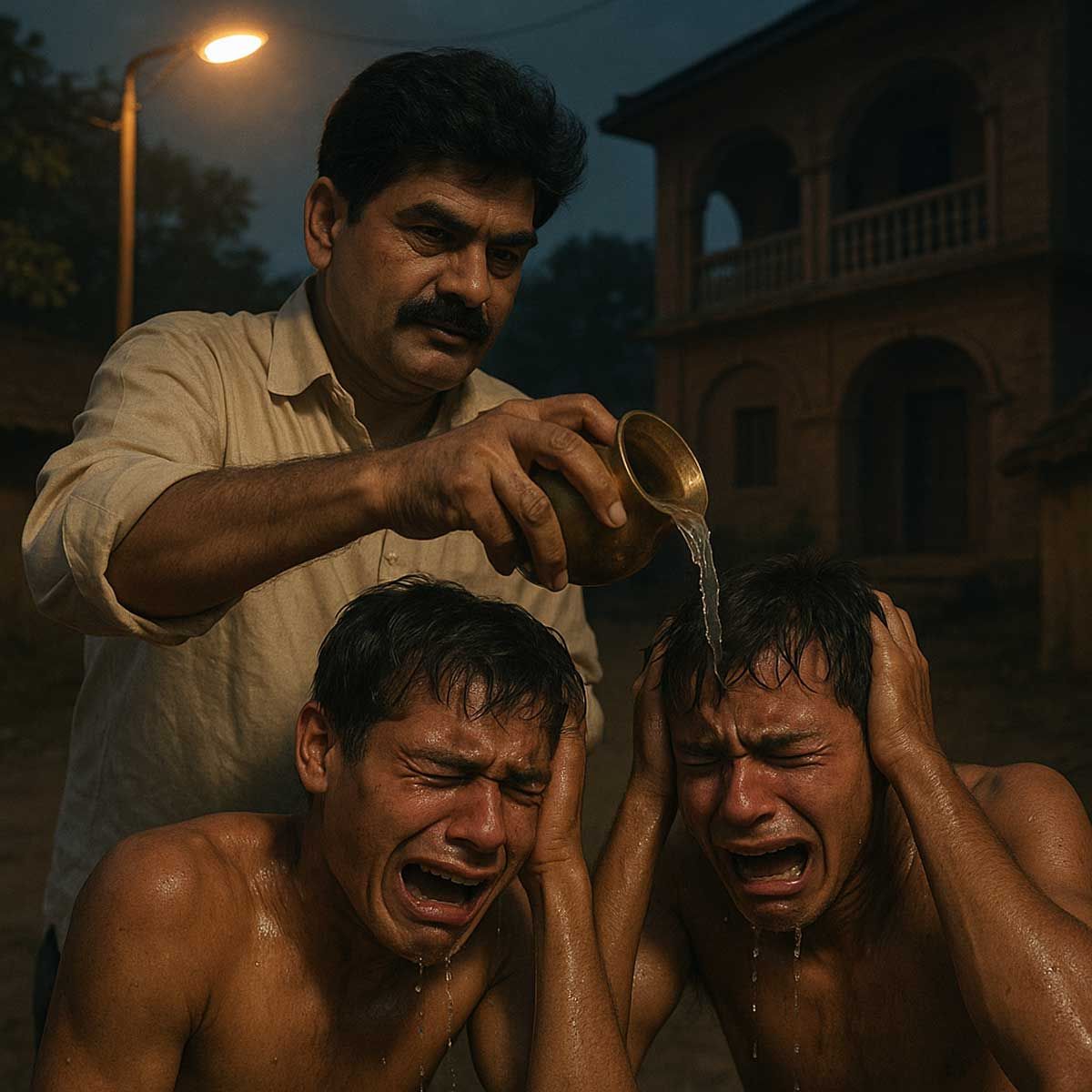MORE COVERAGE
Hindu Spirituality Versus Monotheism - Defence of Hindu Society
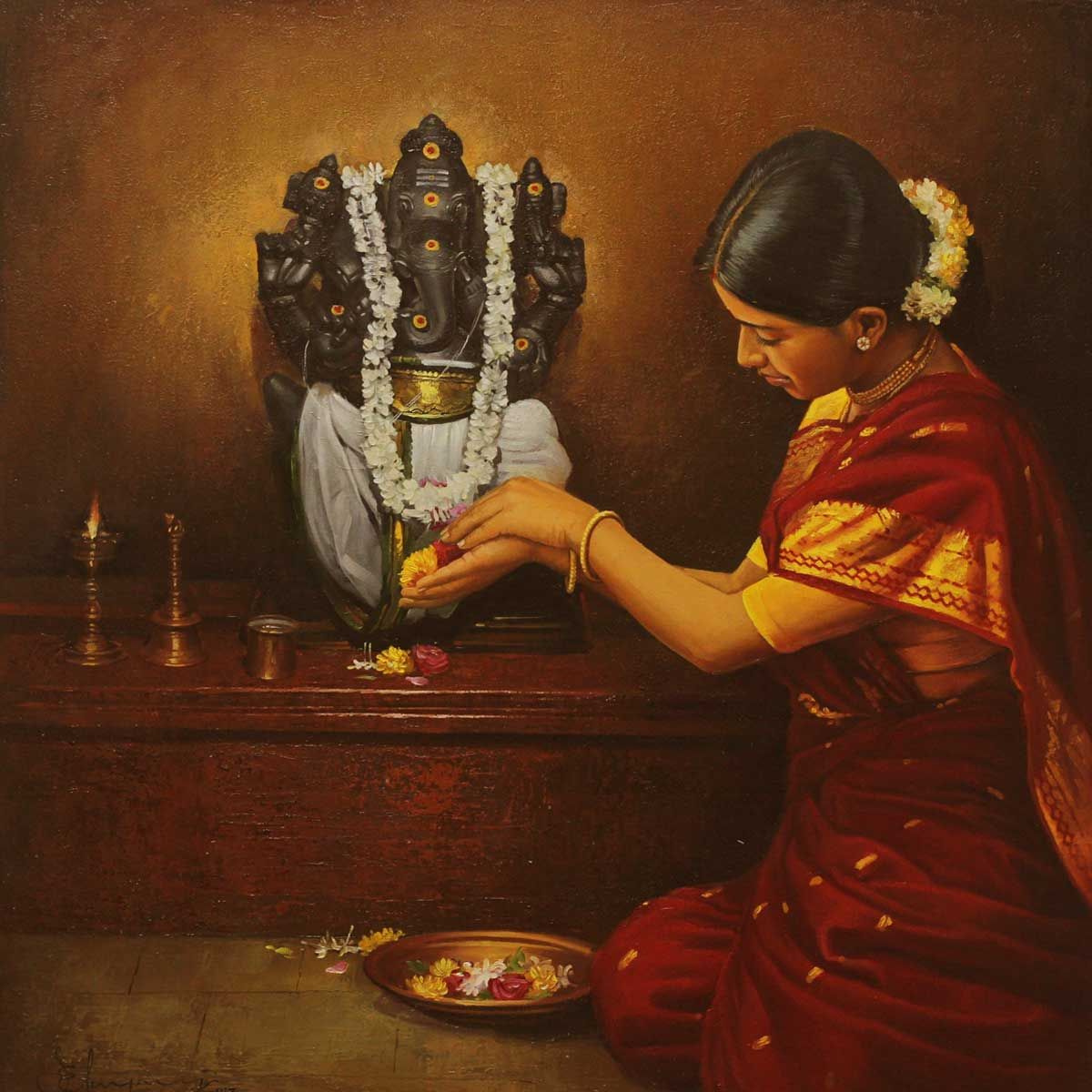
It is an intuition ingrained in the Hindu psyche to inhabit our entire environment - celestial, physical, vegetable, animal, and human - with innumerable Gods and Goddesses. Some of these divinities are installed in temples as icons and worshipped with well-defined rituals. Some others are worshipped as and where they are invoked. Hindu shastras, saints, and sages have paid homage to many Gods and Goddesses in many sublime hymns.
The Sky which forms the firmament, and permeates the whole universe as space including the interstices in human and animal and vegetable anatomies, is a great God. It is the abode of all sounds. And it harbors in its vastnesses many other Gods such as the Sun and the Moon and the Stars, and Goddesses such as the Dawn and the Dusk. These celestial Gods and Goddesses are worshipped in their own right, particularly the Sun and the Moon, and the Dawn.
The Air which fills the hollow between the sky and the earth, which rages like a storm and blows like a breeze, and which sustains the respiratory system in all that is alive, is also a great God. It is not visible but it manifests itself by its power to touch and turn.
The Earth which bears all burdens, which bestows boundless bounties from beneath and above its surface, and which is the symbol of forgiveness and forbearance, is also a great Goddess. The mountains which soar up till they become snow-capped are the abodes of Gods and Goddesses. So are the forests which are full of flowers and fruits and varied wealth. Some creepers and plants and trees are veritable Gods and Goddesses, harkening us to pay our homage to them.
The Water which is clustered in the clouds, which pours down as rain, which flows in rivers and springs, which gets stored up in tanks and lakes and seas and oceans, which showers itself as snow and gets settled as ice on mountain tops are also a great God. It washes all dirt and slakes all thirst. It nourishes our field crops and our forests. It becomes the sap in all vegetables and fruits and circulates like blood in all animals and humans. Lakes like the Mãnasarovara are especially sacred because Gods and Goddesses play their games in and around them. Rivers like the Ganga and the Godavari are themselves, Goddesses.
The Fire which blazes in the sun, which heats every hearth, and which is stored as energy in all fuels, is also a great God. It manifests itself not only as heat but also as a light that shines in the stars, which reveals itself in a riot of colors, which endows everything with form, and which lends vision to every eye. It maintains every metabolism as vital heat without which nothing can remain alive. The Fire God is worshipped daily in the family hearth, is regarded as the ambassador of Gods in every sacrifice, and is a witness to the sanctity of all sacraments.
The birds, the fishes, and the animals are the venerable vehicles of Gods and Goddesses and are revered as much as their riders. The Garuda is the vehicle of Vishnu, the bull that of iva, the lion that of Durgã, the mouse that of Ganapati, the swan that of Sarasvatî, and the owl that of Lakshmî. The horse is yoked in the chariot of Indra as well as that of the Sun. The snake is nãga-devatã. And the cow is sacred above all, a Goddess par excellence.
Nearer home, the mother is a Goddess and the father a God, to be obeyed while they are in their prime and served when they grow old. They are to be remembered with reverence, and their protection is to be sought after they pass away and become pitris. The wife who looks after the family welfare, who brings up the children, and who participates in all sacraments, is a Goddess. The Guru who is the repository of wisdom and learning is also a God to be propitiated with gifts as profuse as one can afford. The Guest who comes to our home by chance is a God deserving of our warmest hospitality. The King who protects us from evildoers and presides over the welfare of his praMã is also a God.
And so on, the roster is endless. Every family has a kula-devatã, every community a Mãti-devatã, every village a grãma-devatã, every city a nagara-devatã, and every region a Manapada-devatã. The Bhãratamãtã who came to be worshipped as rãshtra-devatã in more recent times, and who inspired the national song, Vande Mataram, is a projection of the same Hindu psyche which sees a God or a Goddess in everything, everywhere. It is a belief common among Hindus that the Gods and Goddesses worshipped by them add up to thirty-three crores.
The Hindu psyche has always harbored a deep sense of sanctity towards all elements and forces of Mother Nature, in all their forms and transforms. It worships these elements and forces not only outside the human body but also within it. It sees the human body as a magnificent mansion in a building in which all these elements and forces of Mother Nature have participated and feels grateful towards what it greets as great Gods and Goddesses.
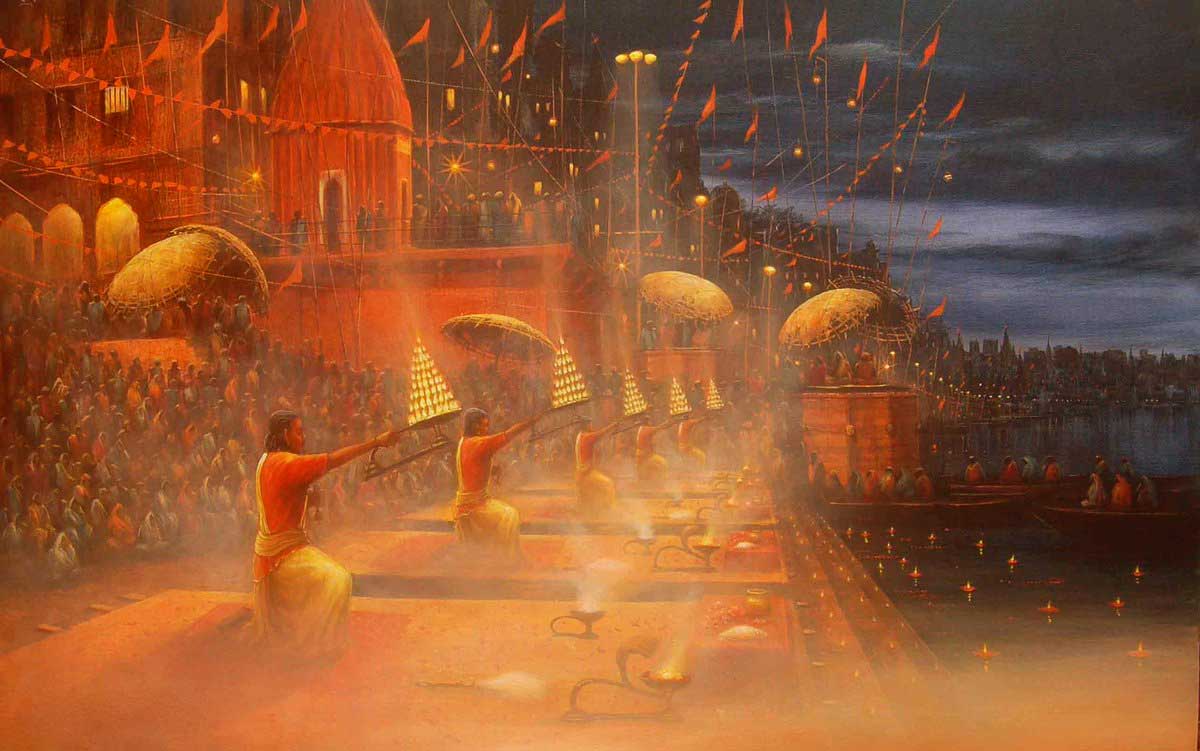 |
What is more significant, this Hindu psyche intimates that as all that is without is also within, all that is within must also be without (yathã pinde tathã brahmãnde). It, therefore, invests everything outside with life, with consciousness, with thought and feeling, and also with will. The inanimate thus becomes animate, the unconscious becomes conscious, the thoughtless becomes thoughtful, the insensitive becomes sensitive, and the inert becomes active.
This power of the Hindu psyche persists till long after a Hindu gets converted to Christianity or Islam, and invites frowns and fierce lectures from the missionary and the mullah. This power of the Hindu psyche is illustrated by the story of a Hindu lady in Kerala who got converted to Christianity for some reason. The missionary who had presided over the conversion paid a visit to her home one day and found her worshipping the old Hindu Gods and Goddesses of the family. The missionary was red in the face and rebuked her in the name of the only True God. The lady smiled and said, "So what? My becoming a Christian does not mean that I have renounced my Dharma!
It would not do for Hindu society to fight shy of this pervasive Hindu psyche which is as old as the oldest Hindu shastras, the Vedas, and perhaps much older. It would not do for Hindu society to disown this deep-seated Hindu psyche that sustains practically the whole of Hindu religion and culture. Hindu society has to go back to the source of this psyche, reawaken to the spiritual center which gave birth to this psyche, and reaffirm an abiding faith in its reaches and ramifications.
Hostility to Hindu Psyche
Western sociology is trying to explain this psyche as a hangover from a primitive past when human reason was not so developed and could not discriminate between fact and fancy, or, worse still when puerile priestcraft succeeded in deceiving people for its private profit. The Western Science of Comparative Religion, which is only another name for Christian theology, is trying to pooh-pooh this psyche as a vestige of primitive animism which was at best only a crude form of religious awakening.
A more serious attack on this Hindu psyche is mounted by the Christian missionary. He pronounces that the Hindu psyche has been heavily polluted by pantheism which sees a God or Goddess in every bug that bites and every cockroach that crawls. He believes that Hindus can be cured of this perverse psyche only by being baptized in the Christian Church, and by accepting Jesus Christ as the one and only savior.
Similarly, the Muslim mullah frowns on this Hindu psyche as a shirk, that is, a mixing up of the divine with the mundane. He sees no future for Hindus, either here or hereafter, unless they accept Allah as the only true God, and Muhammad as the last prophet of Allah.
And the missionary and the mullah are not mere preachers of some distinct doctrines. They are also crusaders and mujãhids who believe that Hindus should either be converted to the true faith or killed and consigned to eternal hell-fire. Destruction and defilement of the images of Hindu Gods and Goddesses, demolition of Hindu temples and monasteries, desecration of Hindu places of pilgrimage, and burning of Hindu shastras are the fundamental tenets of their faiths.
What is this other psyche which is suffused with such smug self-righteousness, and which finds such satanic satisfaction in hurting the deepest sentiments of people belonging to another faith? Hindu society will have to understand this other psyche if it wants to save itself from the inroads of Christianity and Islam, both of which are eating into its vitals with the aid of international allies and resources.
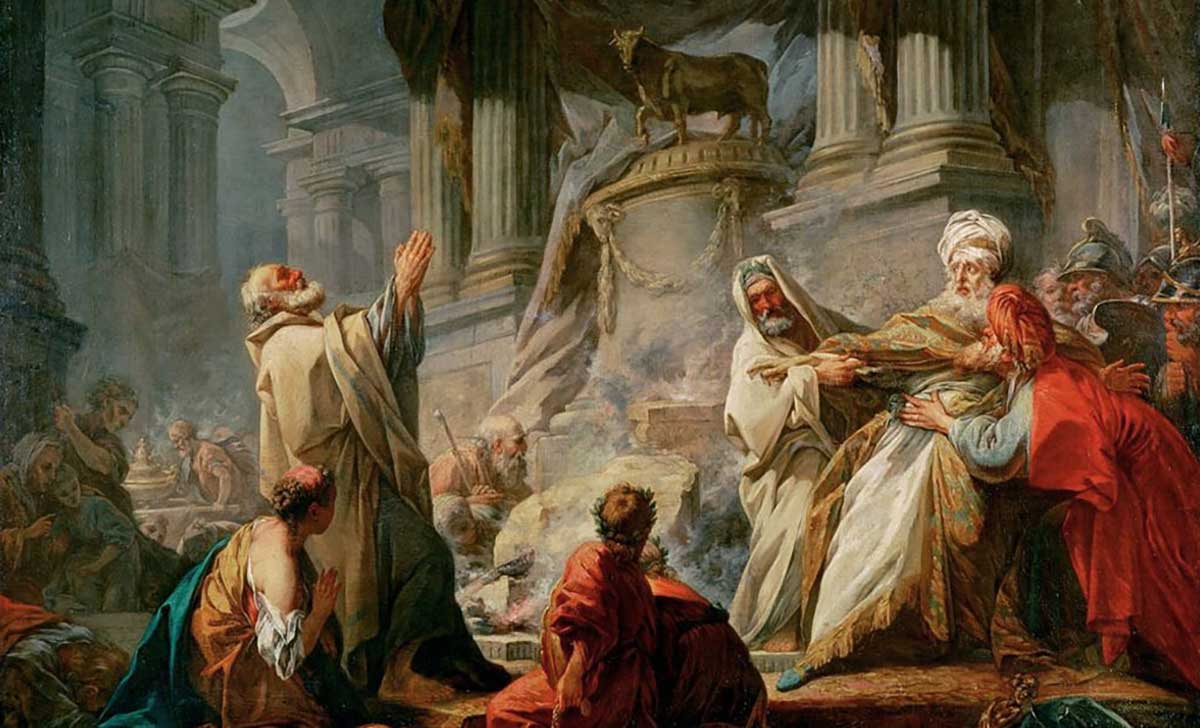 |
Theology of Monotheism
Let us for the time being forget the Freudian analysis of Christianity and Islam, though that analysis provides an intimate peep into the psyche of these primitive creeds. Let us have a look at the philosophy underlying their doctrines, and find out if they have any share in the spiritual seeking which is intrinsic to human beings and which stands systematized in Sanãtana Dharma.
Christianity and Islam differ on many points of detail. But they share a common view of what they invoke as the creator and controller of the cosmos, as well as of the cosmic process. In the language of theology, they describe their basic dogma as Monotheism as opposed to what they denounce as Polytheism and Pantheism. It is this basic dogma that needs a philosophical probe deeper than that to which it has been subjected so far.
The term Monotheism casts such a magic spell on certain minds that they stop at its literal meaning - the concept of one God as opposed to many gods. But the literal meaning tells us little, almost nothing, about its theological inspiration or its practical implications.
In the theology of Monotheism, God is extra-cosmic. He created the cosmos out of Nothing to demonstrate his almightiness and, consequently, kept himself outside and above the Cosmos. There is nothing in God's creation that can partake of God's divinity. The elements and forces of Nature are devoid of any divinity whatsoever. The sky is space, and the Sun and the Moon and the Stars are only bright spots in that sky. Matter is material, and animals and birds are mere brutes unless they are domesticated when they show some improvement. Trees are timber, and the flowers embody no more than color and fragrance. Air and water and fire and earth are what they are, and point to nothing beyond.
It is the only man who is placed on a higher pedestal because the Almighty God blew His breath into the handful of dust which He used to manufacture Adam, the male ancestor of the human race. A woman cannot share man's status because Eve, the female ancestor of the human race, was carved out of Adams's rib without the benefit of God's breath being blown into it. Man is thus the best of God's creation, the ashraf-ul-makhlûqãt.
But it is an unpardonable folly and a cardinal sin for a man to fancy that he shares even an iota of God's divinity. The only privilege that man enjoys as God's best creation is to lord it over the lower creation which God has made for man's use and benefit. Man can exploit the material resources of the earth in whatever way he pleases. Man can eat every bird and fish and animal for God has created them specifically for man's consumption. And man can marry and divorce and keep as his concubines any number of women, at any stage of his threescore and ten years. (The monogamy we find in Christianity is not prescribed by the Christian scripture. It was an institution which is borrowed from the pagan Romans.)
As man is likely to be carried away by the freedom of will which has been bestowed on him and forget his creator, God has been sending prophets from time to time to restrain him from the worship of false gods and philosophical speculation, and to turn his thoughts towards a higher purpose - obedience to God's will as revealed through the prophets. The complete code of such do's and dont's has been conveyed by God in his final revelation - the New Testament according to Christianity and the Quran according to Islam - through his only son who is Jesus for Christianity or the last prophet who is Muhammad for Islam.
The supreme purpose of man's life is to worship this extra-cosmic God with whom man cannot communicate directly, lead a life of piety according to rules laid down in the final revelation which man cannot question, and seek the intercession of the only son or the last prophet whose claims man cannot scrutinize in terms of his natural reason or normal moral sense. If a man can thus bid good-bye to his critical faculty and conscience, the seats of the Satan, he can hope for eternal heaven at the end of the only life God has granted to him. But if man wavers, or questions, or criticizes, or tries to understand, or judge these mysteries by using his mind or moral sense, he becomes bound for an eternal hell from which there is no escape, and where the torment turns worse and worse with the ticking of every moment.
Whether all this applies to women as well has been a point of dispute among Christian and Muslim theologians. Nevertheless, this much is clear that Islam at least assigns the same role to a woman in heaven as she is expected to play on this earth - to serve man in servile obedience and to provide sexual pleasure to her male master. The only concession extended to a woman after she enters heaven is to be spared the pains of maternity and old age. She becomes a houri endowed with eternal youth and unfading beauty. In Christianity, a woman is essentially a temptress who leads a man to hell. Her role in the hereafter has not been clearly defined.
An added duty of all true believers is to band together in a Church or an Ummah for propagating the only true religion and to prop up the only son or the last prophet by all means including force and fraud. The fraternity thus formed is expected to invite all unbelievers to get converted to the only true creed, and to declare a crusade or Jihãd against all those who refuse to be persuaded peacefully for saving themselves from eternal perdition and for securing eternal heaven. The Church is expected to secure the aid of its secular arm, and the Ummah is expected to convert itself into a theocratic state to carry forward the struggle.
There is no limit to what these holy wars can legitimately do to the unbelievers except the limit imposed by power equations at any time. The least that the wars should do at the first available opportunity is to destroy the false gods of the unbelievers, and the unholy temples where those gods are worshipped. The holy warriors are under no obligation at all to prove that they are better human beings as compared to those they are expected to convert, or kill, or enslave, or subjugate. Their only qualification is that they believe in the only son or the last prophet and follow the only true religion.
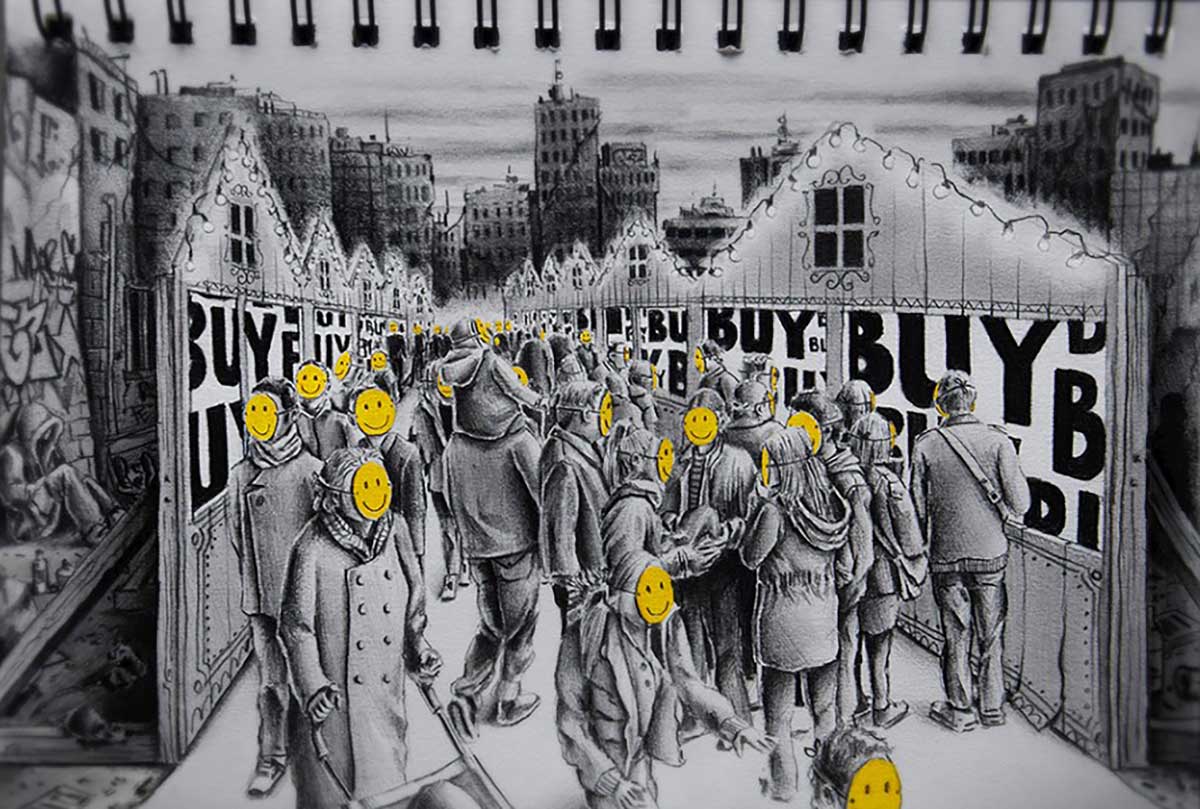 |
Monotheism is Disguised Materialism
One may spend a lifetime searching this theology of Monotheism for factual or rational proof of what it proclaims so pompously. But the search will be in vain. For, all the time it assumes what it wants to prove, and proves what it has already assumed. At its best, it is a syllogism of which the major, as well as the minor premise, are arbitrary assertions.
Is there proof that a being called Almighty God exists, and controls the cosmos? The answer is that the only son or the last prophet has said so. Who has sent this son or appointed this prophet to tell us about God and his doings? The answer is that it is God who has proclaimed the son or the prophet. What is the proof that what the son or the prophet pronounces as a divine revelation comes from God? The answer is that the revelation says so. And so on, it is an endless exercise in casuistry with no reference to human experience or human reason at any point.
In the last analysis, God is a superfluity in this system of thought. A time comes when God imparts his final revelation to the only son or the last prophet and retires to a well-deserved rest after entrusting the fate of his world as well as of his creatures to the keeping of the son or the prophet. In due course, the son or the prophet also is dead and gone after bequeathing his monopoly over truth and virtue to the Church or the Ummah. The Church or the Ummah, in turn, is dominated by a single man or a clique that can control and use a mighty military machine that has been built in the meanwhile. In the final round, it all ends up as imperialist aggression against other people in which a veneer of religious verbiage is retained to sustain the self-righteousness of the aggressor. The idols of the conquered people are destroyed and their temples pillaged, not because their Gods are false but because an imperialist always aims at destroying the self-respect of a people upon whom he wants to secure a stranglehold. It is like imperialism to indulge in cultural genocide on the slightest pretext, or at the first favorable opportunity.
The plight of the Allah of Islam is portrayed by Shykh Muhammad Iqbal when he puts the following question to Allah in his Shikwã: Tujhko malûm hai letã thã kuî nãm tirã / Quwwat-i-bãzû-i-muslim nê kiyã kãm tirã (Do you know of anyone who bothered about you before we came forward? It was the muscle-power of the Muslim which came to your rescue). The God of the Bible is in no better position. He has been held aloft all along by Christian bayonets or Christian bags of money.
History is witness that Christianity, as well as Islam, have always expanded by the power of the sword, and seldom by the power of any truth contained in their scriptures. In the words of Iqbal again, Par tire nãm pê talwãr uThãî kisnê? Kãt kar rakh diyê kuffãr kê lashkar kisnê (But who did draw their swords in defence of your name and fame? Who was it that slaughtered the armies of the infidels for your sake?). It is obvious that the Allah of Islam had to be thrust down people's throats at the point of the sword. Otherwise, poor Allah was a non-existent entity that no one was prepared to affirm. The same can be said of the Jehovah of Christianity, though no Christian poet has had the honesty of Iqbal to come out with the naked truth in a frank and forthright manner.
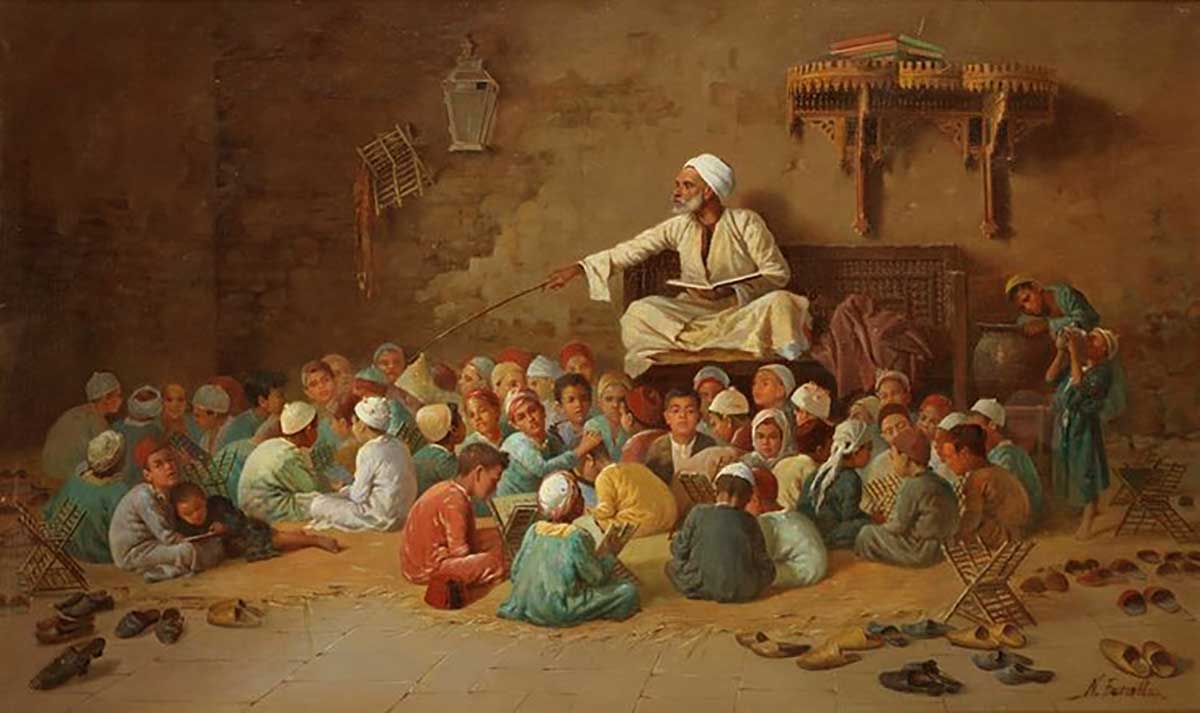 |
It is a small wonder, therefore, that these politics of power masquerading as a religion, cannot understand the language of spirituality which speaks in terms of a Divinity secret in everything, everywhere, and which enables human beings to dwell constantly in the company of Gods and Goddesses. This politics is too busy amassing wealth and power and pleasures of a material world to care for things that belong to the realm of Spirit.
Pained by the poverty of Muslims and the decay of the power of Islam, Iqbal has lamented: Qahar tõ yêh hai ke kãfir ko milê hûr-o-qusûr/ Aur bechãrê musalmãñ kõ faqat wada-i hûr (The terrible tragedy is that the infidels live in palaces and make love to houris in this life, while the poor Muslim has to remain content only with the promise of houris hereafter). This is the highest aspiration to which this venerable Allãma of Islam could ever attain. It speaks volumes about Islam as a religion. Christianity too aspires towards no goal higher than this. Only its spokesmen are not so crude (or honest) in putting forward its case.
Hindu society has not only to recover the source of its own psyche which speaks in the language of Gods and Goddesses, but it has also to realize that the psyche of Christianity and Islam hides vulgar materialism and imperialist ambition under a welter of high-sounding verbiage.
Chapters - Defence of Hindu Society (Sita Ram Goel)
- The Situation at Present
- Sanãtana Dharma Versus Prophetic Creeds
- The Spiritual Centre of Hindu Society
- Hindu Spirituality Versus Monotheism
- The Basis of Universal Spirituality
- Revival of Universal Spirituality
References:
Defence of Hindu Society - Sita Ram Goel - Voice of India, New Delhi
 Support Us
Support Us
Satyagraha was born from the heart of our land, with an undying aim to unveil the true essence of Bharat. It seeks to illuminate the hidden tales of our valiant freedom fighters and the rich chronicles that haven't yet sung their complete melody in the mainstream.
While platforms like NDTV and 'The Wire' effortlessly garner funds under the banner of safeguarding democracy, we at Satyagraha walk a different path. Our strength and resonance come from you. In this journey to weave a stronger Bharat, every little contribution amplifies our voice. Let's come together, contribute as you can, and champion the true spirit of our nation.
 |  |  |
| ICICI Bank of Satyaagrah | Razorpay Bank of Satyaagrah | PayPal Bank of Satyaagrah - For International Payments |
If all above doesn't work, then try the LINK below:
Please share the article on other platforms
DISCLAIMER: The author is solely responsible for the views expressed in this article. The author carries the responsibility for citing and/or licensing of images utilized within the text. The website also frequently uses non-commercial images for representational purposes only in line with the article. We are not responsible for the authenticity of such images. If some images have a copyright issue, we request the person/entity to contact us at This email address is being protected from spambots. You need JavaScript enabled to view it. and we will take the necessary actions to resolve the issue.
Related Articles
- Tipu Sultan remembered as killer of Brahmins and demolisher of temples in many villages of Tamil Nadu: a freedom fighter or Islamic bigot?
- The Basis of Universal Spirituality - Defence of Hindu Society
- The Situation at Present - Defence of Hindu Society
- When true Historian Sita Ram Goel's Challenge Became a Nightmare for Marxist Historians
- The Communist Conspiracy - Hindu Society Under Siege
- Sanãtana Dharma Versus Prophetic Creeds - Defence of Hindu Society
- Standing Up to Scrutinize Islam - Freedom of Expression
- Ban this book "Hindu View of Christianity and Islam" by Ram Swarup - Freedom of Expression
- In The Name of National Integration - The Story of Islamic Imperialism in India
- The Spiritual Centre of Hindu Society - Defence of Hindu Society
- The Residue of Macaulayism - Hindu Society Under Siege
- Historian with Communist glasses: When Pandit Nehru rose to unrivalled power and position in India his book 'Glimpses of World History' was recommended as a reliable reference work for advanced students of history in Indian universities
- Revival of Universal Spirituality - Defence of Hindu Society
- Plea for a Perspective: The Story of Islamic Imperialism in India
- In Search of a Culprit - Genesis and Growth of Nehruism Vol 1
Related Articles
Twitter Coverage
Satyaagrah
Written on
Satyaagrah
Written on
Satyaagrah
Written on
Satyaagrah
Written on
Satyaagrah
Written on
